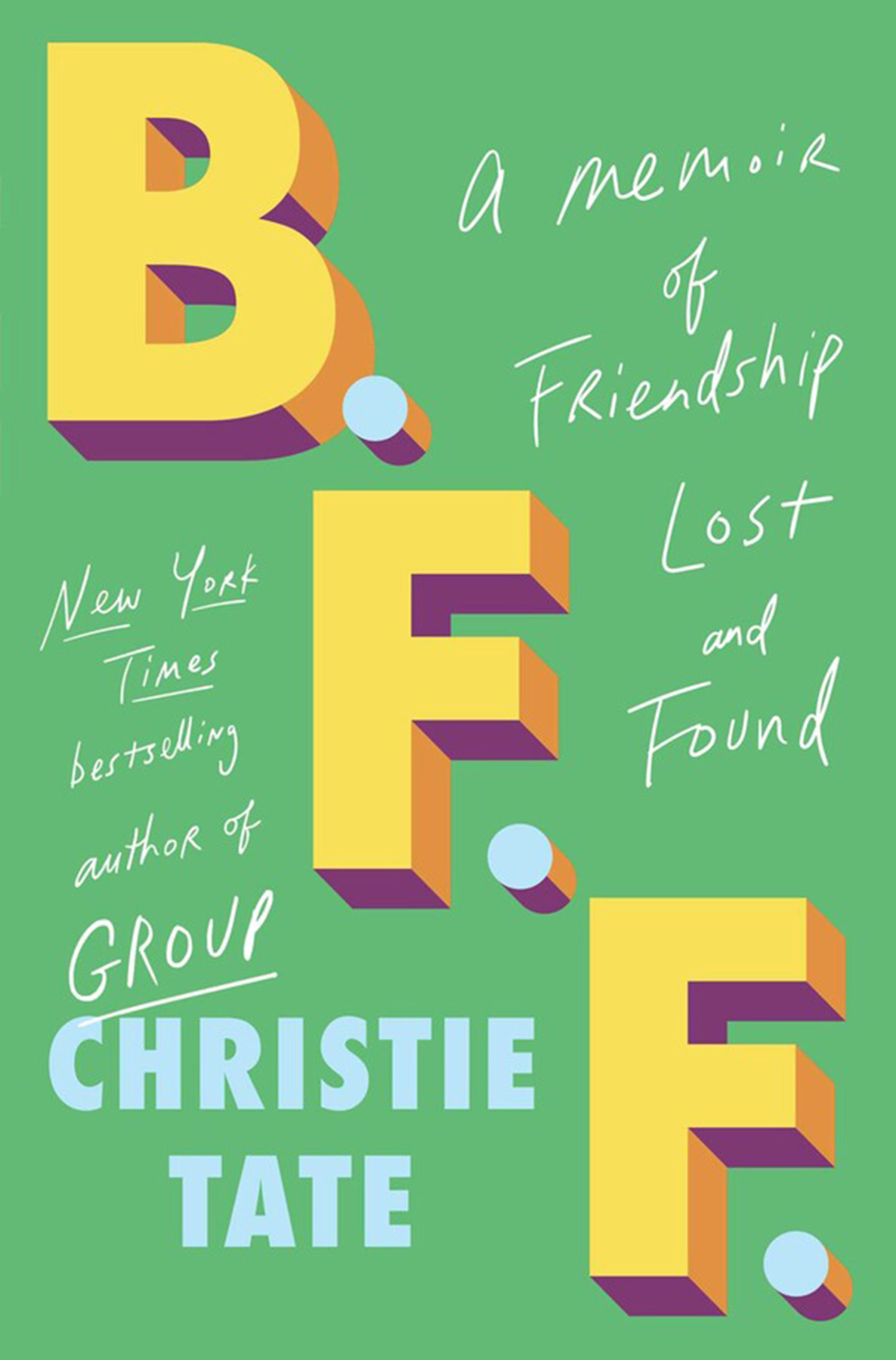Heidi Stevens
Tribune News Service
WWR Article Summary (tl;dr) As Heidi Stevens reports, “B.F.F.” explores the multi-layered beauty of friendships. In this case, the story begins in the trenches of grade school and weaves its way through college, law school, dating, weddings, babies and therapy.
Tribune News Service
Christie Tate opens her new memoir, “B.F.F.,” at a memorial service.
She’s delivering her first eulogy. It’s for Meredith, the first friend with whom she enjoyed a steady, decade-long relationship, and the first friend she lost to death.
“It was with Meredith’s help that I’d learned how to be a friend,” Christie Tate writes. “To tolerate the vagaries of friendship, address the pain of competition with and envy of other women, and confront the lie of my own unworthiness. Without the work I’d done with Meredith, I would have looked out into the audience and seen threats, competition and frenemies.”
Imagine the courage it took to write that paragraph.
And then publish it.
Tate catapulted onto the literary scene in 2020 with “Group,” a gorgeous, brave, vulnerable memoir about group therapy and all the ways it scared, shaped and saved her. Reese Witherspoon selected “Group” for her book club. It was an instant bestseller.
“B.F.F.” carries that torch, and uses it to illuminate the unexpected, unexplored corners of friendship and isolation, belonging and insecurity.
“I’ve very quietly been very interested in friendship for a while,” Tate told me by phone recently, “because I think I positioned myself on the outside of it for so long. It seemed so mysterious—in the same exact way I thought romance was this thing other people knew how to do and I didn’t.”
“B.F.F.” is the story of her learning how. It starts in the trenches of grade school and weaves its way through college and law school and dating and weddings and babies and therapy. It reveals a longing and a loneliness that so many of us will relate to. I know I did.
“The thrill of being claimed,” Tate writes, after middle school Tara passes her a note signed with that head-spinning declaration: Your B.F.F. “It was all I ever wanted.”
It’s what we were taught to want, especially as girls. To be chosen.
“There was a real passivity in how I approached friendships,” Tate said. “I wanted it to be easy. And like so many things in life, being chosen doesn’t feel like I thought it would once it finally happens. The glory is so fleeting.”
The good stuff—the beauty and richness and even the hurt—happens, she learned, when you put in the work. When you show up and speak up and stretch past your comfort zone. When you stick it out through the painful, embarrassing, envy-inducing stuff that inevitably occurs when two humans try to stitch their hearts and moments and memories and futures together.
We talk about that stuff in terms of romance and intimacy. But friendship is a relatively unexamined, underexplored topic—leaving us with precious few instruction manuals and the nagging sense that it should just come naturally.
“Romantic relationships, marriage, family—that’s where the real grant money is,” Jennifer Senior wrote in her 2022 Atlantic article, “It’s Your Friends Who Break Your Heart.” “They’re a wormy mess of ties that bind, whether by blood, sex, or law, which makes them hotter topics in every sense—more seductive, more fraught.
“But this lacuna in the literature is also a little odd,” Senior wrote, “given that most Americans have more friends than they do spouses.”
And love is every bit at the center of our friendships.
“I’ve had women tell me their friendship breakups have been many more times devastating, or at least on par with, their romantic breakups,” Tate said. “Waking up in the middle of the night, thinking you saw her car, wondering if she’s going to be at the party, wondering if you look pretty when you run into her. Those tropes are well ingrained in romantic relationships, but I’ve experienced every one of them in my friendships too.”
She hopes “B.F.F.” gives readers permission, and vocabulary, to talk about all of it.
“People are struggling,” she said. “They feel like, ‘I don’t know how to put together this group of friends that I see everyone else having on social media.’ There’s this feeling, especially as a woman, that we should be better at it. I should know how to cook, and I should know how to have friends. And I can’t do either without lots of help. That’s hard to talk about.”
But Tate, as is her forte, found a way—making space for the rest of us to pick up where she left off.
At one point in the book, when Tate is finding her way through new motherhood and helping a friend who’s about to do the same, she writes this line:
“I vowed to be generous and always tell the truth about my experience.”
How’s that for an instruction manual? For friendship and so much more.
Heidi Stevens is a Tribune News Service columnist. You can reach her at heidikstevens@gmail.com, find her on Twitter @heidistevens13 or join her Heidi Stevens’ Balancing Act Facebook group.
©2023 Tribune News Service. Distributed by Tribune Content Agency, LLC.












































































































































































































































































































































































